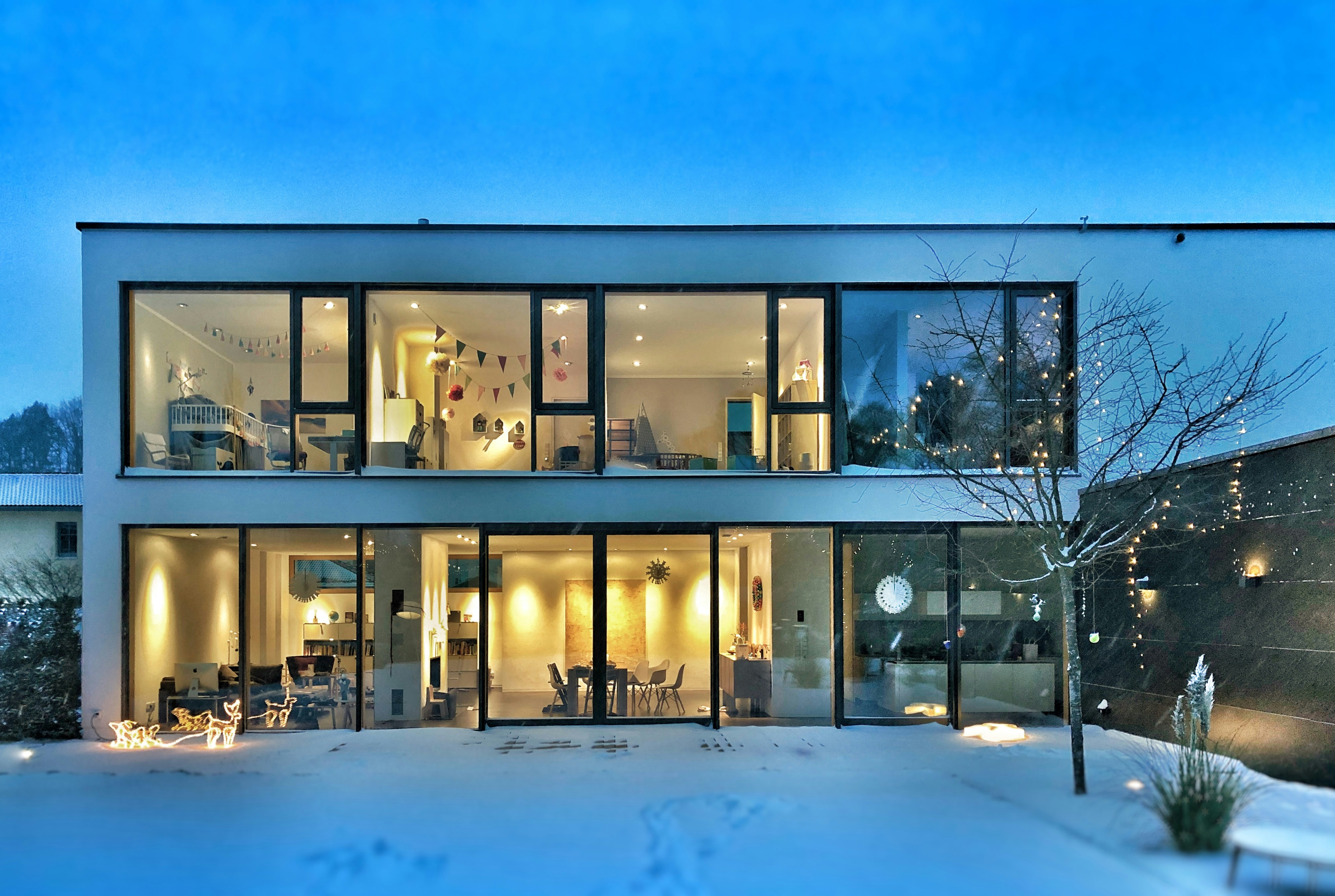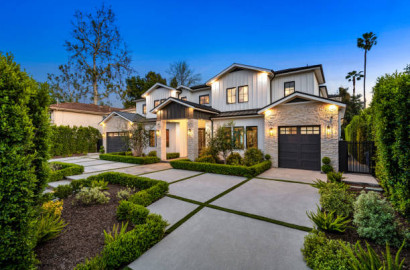
When it comes to housing, one of the biggest decisions people face is whether to rent or buy. Both options come with their own set of benefits and challenges, and the best choice depends on various personal, financial, and lifestyle factors. In this blog post, we will dive deep into the pros and cons of both renting and buying, helping you make an informed decision that suits your needs.
For many, the idea of owning a home is part of the "Nigerian Dream." However, with changing economic conditions, rising property prices, and fluctuating interest rates, more people are considering renting as a viable long-term option. Renting or buying a home is not just a financial decision but also a lifestyle choice. This blog aims to help you weigh the advantages and disadvantages of both options so that you can determine which is the right path for you.
Understanding the Basics
Renting
Renting means you pay a landlord or property management company a fixed amount each month or year in exchange for living in a home or apartment. In return, they are responsible for maintenance and major repairs. When renting, you typically sign a lease agreement, which outlines the terms of your stay, the rent amount, and other rules.
Buying
Buying involves purchasing a home through either cash payment or a mortgage loan. When you buy, you take ownership of the property, including the land it sits on. As a homeowner, you are responsible for all maintenance, repairs, property taxes, and other expenses. Buying is often viewed as a long-term investment that can appreciate over time.
Advantages of Renting

1. Flexibility
Renting offers significant flexibility. If you’re unsure about where you want to live in the long run or anticipate relocating due to work or personal reasons, renting gives you the freedom to move without the hassle of selling a property.
2. Lower Upfront Costs
Renting generally requires a smaller upfront financial commitment. You usually need to pay a security deposit, first month’s rent, and sometimes the last month’s rent. In contrast, buying a home requires a down payment, closing costs, and potentially mortgage insurance.
3. No Maintenance Responsibilities.
As a renter, the landlord or property manager typically handles repairs and maintenance. Whether it's a broken appliance or a plumbing issue, the cost and time commitment for these repairs are usually not your responsibility.
4. Predictable Expenses
Renters enjoy fixed monthly costs, which typically include rent, utilities (in some cases), and possibly renter’s insurance. Property taxes, home repairs, and other unexpected costs are not a concern for renters, making budgeting easier.
5. Access to Amenities
Many rental properties offer amenities such as swimming pools, gyms, and community centers at no additional cost. Homeowners would have to pay for these luxuries separately or through Homeowners Association (HOA) fees.
Disadvantages of Renting
1. No Equity
When you rent, you’re not building equity in the property. Once your lease ends, you walk away with no return on your investment. In contrast, homeowners can sell their homes for a profit if the property value increases.
2. Limited Control
Renters have limited control over the property. You can't make significant changes, and even minor renovations may require approval from your landlord. Additionally, rent increases or the sale of the property by the owner could force you to move.
3. No Tax Benefits
Homeowners can take advantage of tax deductions, such as mortgage interest and property taxes, while renters do not have these opportunities.
Advantages of Buying

1. Building Equity
Each mortgage payment helps you build equity in your home. Over time, your home can appreciate in value, offering potential financial returns when you sell. Additionally, owning property can act as a hedge against inflation, as housing costs rise over time.
2. Stability and Control
Owning a home offers stability. You don’t have to worry about a landlord raising your rent or forcing you to move. Additionally, you have full control over renovations, decorations, and how you use the space.
3. Potential Tax Benefits
Homeowners can enjoy tax deductions for mortgage interest, property taxes, and certain home improvements. These deductions can help lower your overall tax bill and make homeownership more affordable.
4. Long-Term Investment
A home is a long-term investment that can appreciate over time. Unlike renting, where payments go to the landlord, owning means your monthly payments contribute to an asset that could grow in value.
Disadvantages of Buying
1. High Upfront Costs
The biggest hurdle for many potential buyers is the high upfront cost. A down payment (typically 3%–20% of the home’s value), closing costs, and other fees can add up to thousands of Naira or dollars, depending on where you are buying from and the location.
2. Ongoing Maintenance
Owning a home comes with significant responsibilities. You’ll need to budget for repairs, maintenance, and upkeep. Whether it’s a broken furnace, a leaking roof, or a landscaping issue, the homeowner is responsible for all repairs.
3. Less Flexibility
Buying a home can tie you down to one location for a longer period. If you anticipate moving for work, family, or lifestyle changes in the near future, selling a home can be a time-consuming and costly process.
4. Market Risk
The housing market can fluctuate, and there’s no guarantee your home will increase in value. In some cases, homeowners may find themselves "underwater" (owing more on the mortgage than the home is worth), particularly in times of economic downturn.
Key Factors to Consider
1. Financial Situation
Evaluate your financial health. Do you have enough savings for a down payment? Can you afford monthly mortgage payments, property taxes, and insurance? If not, renting may be a better short-term option while you build up your finances.
2. Lifestyle Preferences
Do you value flexibility and the ability to move frequently, or do you prefer settling in one location? Renters have the flexibility to move when their lease is up, whereas homeowners have more stability but less mobility.
3. Long-Term Goals
Consider your long-term goals. If building equity and having an investment are important, buying might be the better choice. On the other hand, if your focus is on career mobility or you’re unsure where you want to live long-term, renting may make more sense.
4. Market Conditions
Real estate market conditions can impact your decision. In areas where housing prices are soaring, renting may be a more affordable option. However, in areas with reasonable property prices and low-interest rates, buying could be a wise investment.
Conclusion
Choosing between renting and buying ultimately depends on your personal situation, finances, and future plans. Renting offers flexibility, lower upfront costs, and freedom from maintenance, while buying provides stability, control, and the potential for long-term financial gain. Both options have their pros and cons, so carefully assess your priorities before making a decision.
Whether you decide to rent or buy, the most important thing is to make a choice that aligns with your financial capabilities and lifestyle needs. Take your time, research, and consult with financial advisors or real estate professionals to make the best decision for your future.
Related posts:
It usually starts as a simple question, the kind people ask casually but think about deeply. Do you buy a car to make life easier now, or land to secure something bigger for the future? Both feel important. Both cost...
At some point in the home-buying journey, almost everyone faces the same quiet dilemma. Do you choose the order and structure of an estate, or the freedom and independence of a standalone house On the surface, the decision looks simple....


 Land or Car: Which One Should You Buy First?
Land or Car: Which One Should You Buy First?
 Living In An Estate vs Standalone Houses: Which One Is Actually Better?
Living In An Estate vs Standalone Houses: Which One Is Actually Better?
 Why Many People Start Building and Never Finish
Why Many People Start Building and Never Finish
 Should You Buy a Home or Build One? A Complete Guide to Making the Right Decision
Should You Buy a Home or Build One? A Complete Guide to Making the Right Decision
 The Best Places to Live in Lagos
The Best Places to Live in Lagos